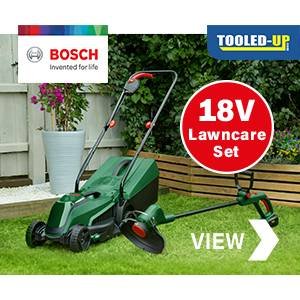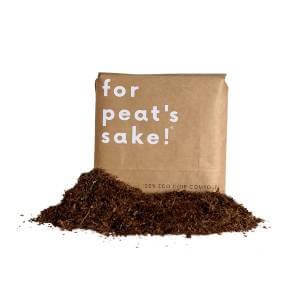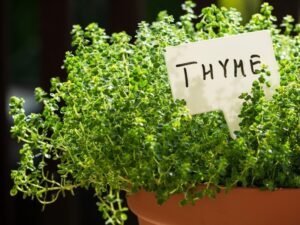Introduction
Welcome to the ultimate guide on how to grow delicious and nutritious runner beans right in your own backyard in the UK. Whether you’re an experienced gardener or just starting out, this comprehensive step-by-step guide will provide you with all the information you need to successfully cultivate these versatile and easy-to-grow plants.
Why Should I Grow Runner Beans?
Runner beans are not only a delight to eat, but they also offer a range of health benefits. Packed with vitamins, minerals, and dietary fiber, they are a nutritious addition to any meal. Growing your own runner beans allows you to enjoy the freshest produce, free from harmful chemicals, and it’s a rewarding and satisfying experience.
Where is the Ideal Location to Grow Runner Beans?
Runner beans thrive in a sunny spot, so choose a location in your garden that receives at least six hours of direct sunlight each day. They also prefer a sheltered area to protect them from strong winds, which can damage the plants.
Soil Type and Preparing the Soil
Runner beans prefer well-drained soil that is rich in organic matter. Before planting, prepare the soil by removing any weeds and loosening it with a garden fork or tiller. Incorporate compost or well-rotted manure to improve the soil’s fertility and moisture retention.
Watering Tips and Hints
Runner beans require regular watering, especially during dry spells. Water deeply, ensuring that the soil is evenly moist but not waterlogged. Mulching around the base of the plants can help retain moisture and suppress weed growth.
Sowing and Planting Runner Beans
Start sowing runner bean seeds indoors in late April or early May, or directly sow them outdoors in late May or early June when the soil has warmed up. Sow the seeds 5cm deep and 15cm apart, either in rows or in individual holes. Water gently after planting to settle the soil.
How to Grow Runner Beans from Seed
Runner beans can be easily grown from seeds. Soak the seeds overnight before sowing to speed up germination. Plant the seeds in biodegradable pots or modules filled with seed compost. Keep them in a warm and bright location until they develop strong roots and are ready for transplanting.
How to Plant Out Runner Beans
When all risk of frost has passed, and the seedlings have grown to around 15cm tall, they are ready to be planted out. Choose a support structure, such as a trellis or wigwam, and space the plants around 20cm apart. Gently firm the soil around the base of each plant and water well.
General Care for Runner Beans
Regularly check for pests and diseases, such as aphids and powdery mildew, and take appropriate measures to control them. Water the plants regularly, especially during dry spells, and provide support for the climbing vines as they grow. Mulching around the base of the plants can also help conserve moisture and suppress weeds.
How to Harvest Runner Beans
Runner beans are ready to be harvested when the pods are firm, crisp, and about 15-20cm long. Use two hands to gently snap the pods off the plants. Harvest regularly to encourage continuous production throughout the growing season.
How to Store Runner Beans
Runner beans are best enjoyed fresh, but if you have a surplus, they can be stored in the refrigerator for up to a week. To preserve their flavor and texture, blanch them in boiling water for a couple of minutes, then plunge them into ice-cold water before freezing.
Problems in Growing Runner Beans: Common Pests and Diseases
Runner beans may encounter common pests such as aphids, slugs, and snails. Regularly inspect your plants and take necessary measures, such as using organic pest control methods or introducing beneficial insects. Powdery mildew and bean rust are common diseases that can affect runner beans. Ensure good air circulation around the plants and avoid overhead watering to minimize the risk of these diseases.
Where to Buy Runner Beans
You can find runner bean seeds at local garden centers, nurseries, or online seed suppliers. Choose reputable sources that offer a wide variety of runner bean seeds to suit your preferences.
What are the Best Runner Bean Varieties to Grow and Why?
There are several popular runner bean varieties to choose from, such as ‘Scarlet Emperor,’ ‘Painted Lady,’ and ‘White Lady.’ Each variety has its unique characteristics, including flavor, pod length, and flower color. Consider factors such as taste preference, cooking versatility, and plant size when selecting the best variety for your garden.
What Tools Will I Need to Grow Runner Beans?
To successfully grow runner beans, you’ll need a few essential tools, including a garden fork or tiller for soil preparation, a watering can or hose for regular watering, a support structure such as a trellis or wigwam, and gardening gloves for protection while working with the plants.
Conclusion
Growing runner beans at home in the UK is a rewarding and enjoyable experience. By following these step-by-step instructions, you’ll be well on your way to cultivating a bountiful harvest of delicious and nutritious runner beans. Enjoy the satisfaction of growing your own food and savor the unbeatable taste of freshly picked runner beans.
Frequently Asked Questions
Q: When is the best time to start growing runner beans in the UK?
A: Start sowing runner bean seeds indoors in late April or early May, or directly sow them outdoors in late May or early June when the soil has warmed up.
Q: Can I grow runner beans in containers?
A: Yes, runner beans can be grown in containers, provided the containers are large enough and have proper support for the climbing vines.
Q: How long does it take for runner beans to mature?
A: Runner beans typically take around 12-16 weeks from sowing to harvest, depending on the variety and growing conditions.
Q: Do runner beans need full sun?
A: Yes, runner beans thrive in full sun and require at least six hours of direct sunlight each day to grow and produce abundant pods.
Q: Can I save runner bean seeds for future planting?
A: Yes, you can save runner bean seeds for future planting. Allow the pods to fully mature and dry on the plants, then remove the seeds and store them in a cool, dry place until the next growing season.
Keywords: growing runner beans, growing runner beans in pots, when to start growing runner beans, growing runner beans in containers, tips for growing runner beans, growing runner beans from seeds.




































